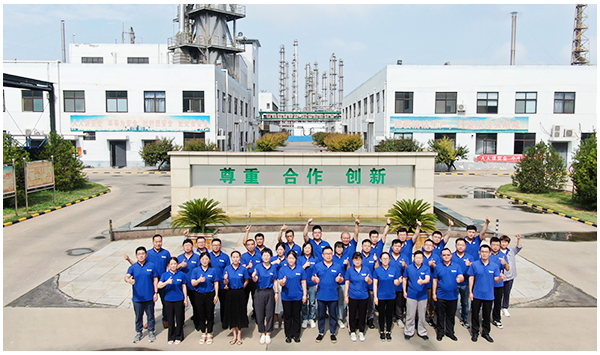
News
Dec . 21, 2024 08:57 Back to list
edta citric acid chelating agent supplier
EDTA and Citric Acid as Chelating Agents Overview and Supplier Insights
Chelating agents play a crucial role in various industries, including agriculture, pharmaceuticals, and environmental remediation. Two of the most widely used chelating agents are ethylenediaminetetraacetic acid (EDTA) and citric acid. Both compounds can bind metal ions, which helps in a range of applications from improving nutrient availability in soils to facilitating drug delivery in medical treatments. This article explores the characteristics of EDTA and citric acid as chelating agents, their benefits, and considerations for suppliers and buyers.
Understanding Chelating Agents
Chelating agents are molecules that can form multiple bonds with a single metal ion, effectively grabbing the metal and preventing it from reacting with other substances. This property is particularly useful in preventing toxic metal accumulation in the environment or enhancing the bioavailability of micronutrients in agricultural practices. EDTA and citric acid are two chelating agents that exhibit distinct properties and applications.
EDTA A Versatile Chelating Agent
EDTA is a synthetic amino acid and a powerful chelating agent commonly used in various industries. Its ability to form stable, water-soluble complexes with metal ions makes it ideal for applications in medicine, horticulture, and industrial processes. In medical applications, EDTA is used to treat heavy metal poisoning and is also employed in some formulations to improve the stability of drugs. In agriculture, EDTA is utilized to improve the availability of essential nutrients like iron, zinc, and manganese in soil, enhancing plant growth and crop yield.
One of the key advantages of EDTA is its stability over a wide range of pH levels, making it effective in diverse environmental conditions. However, there are environmental concerns associated with its use. EDTA is persistent in the environment and can lead to bioaccumulation of metals in aquatic systems. As a result, the use of EDTA is subject to regulatory scrutiny in some regions, prompting industries to seek alternatives or modify application practices.
Citric Acid The Natural Alternative
Citric acid, a natural organic acid found in citrus fruits, is another effective chelating agent. Unlike EDTA, citric acid is biodegradable and poses fewer environmental risks, making it an attractive alternative in many applications. It can effectively chelate metal ions such as calcium, magnesium, and iron, improving their solubility and bioavailability.
In agriculture, citric acid is often used in soil amendments and fertilizers to enhance nutrient absorption by plants. Its natural origin and biodegradability align well with the increasing demand for sustainable agricultural practices. Furthermore, citric acid is widely used in the food and beverage industry as a preservative and flavor enhancer, showcasing its versatility beyond chelation.
edta citric acid chelating agent supplier

Choosing the Right Supplier
When sourcing EDTA and citric acid, finding a reliable and high-quality supplier is paramount. Suppliers should adhere to strict quality standards and regulations, ensuring that their products meet the specific needs of their customers. Here are some key factors to consider when selecting a supplier for chelating agents
1. Quality Assurance Look for suppliers that provide detailed product specifications and quality assurance documents. Certifications such as ISO or GMP can serve as indicators of a supplier's commitment to maintaining high standards.
2. Product Range Depending on your application, it may be beneficial to choose a supplier offering a diverse range of chelating agents. This flexibility allows for the possibility of future application changes or expansions.
3. Sustainability Practices Given the growing emphasis on environmental responsibility, suppliers that demonstrate sustainable production practices and offer biodegradable options like citric acid may be more attractive.
4. Technical Support A supplier that provides technical support and guidance on product applications can be invaluable, especially for industries that require precise formulations and usage recommendations.
5. Pricing and Availability Competitive pricing is always a factor, but the consistency of supply is equally important. A supplier with a reliable distribution network can ensure timely delivery and availability of products.
Conclusion
EDTA and citric acid are essential chelating agents with distinct properties and applications. While EDTA is known for its stability and effectiveness in various sectors, citric acid offers a natural and biodegradable alternative that aligns with sustainable practices. When sourcing these compounds, it is crucial to choose a reputable supplier that meets quality standards, provides a range of products, and offers technical support. Understanding the characteristics of these chelating agents can help industries make informed decisions that benefit both their operations and the environment.
-
OEM Chelating Agent Preservative Supplier & Manufacturer High-Quality Customized Solutions
NewsJul.08,2025
-
OEM Potassium Chelating Agent Manufacturer - Custom Potassium Oxalate & Citrate Solutions
NewsJul.08,2025
-
OEM Pentasodium DTPA Chelating Agent Supplier & Manufacturer High Purity & Cost-Effective Solutions
NewsJul.08,2025
-
High-Efficiency Chelated Trace Elements Fertilizer Bulk Supplier & Manufacturer Quotes
NewsJul.07,2025
-
High Quality K Formation for a Chelating Agent – Reliable Manufacturer & Supplier
NewsJul.07,2025
-
Best Chelated Iron Supplement for Plants Reliable Chelated Iron Fertilizer Supplier & Price
NewsJul.06,2025
